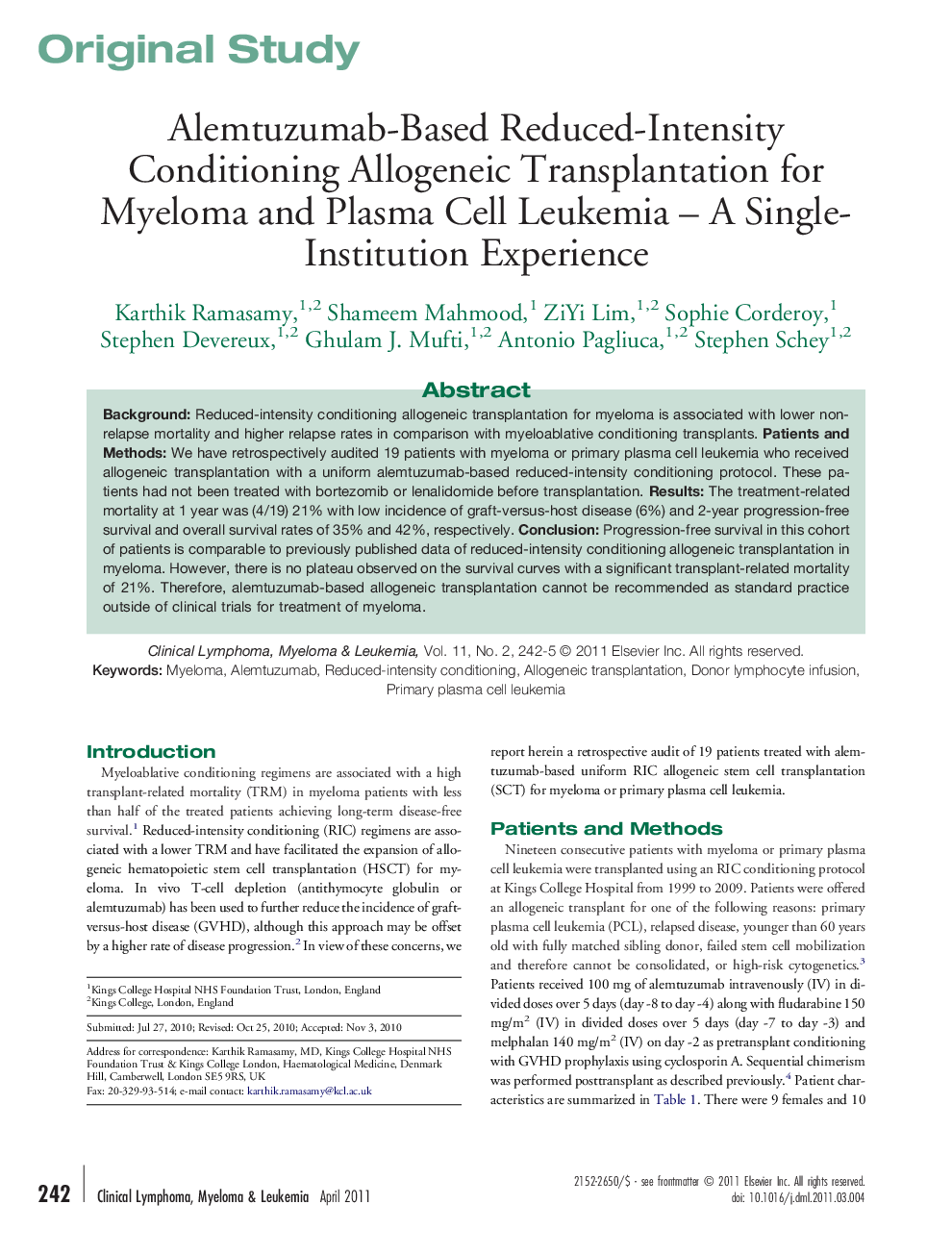| Article ID | Journal | Published Year | Pages | File Type |
|---|---|---|---|---|
| 2754773 | Clinical Lymphoma Myeloma and Leukemia | 2011 | 4 Pages |
BackgroundReduced-intensity conditioning allogeneic transplantation for myeloma is associated with lower non-relapse mortality and higher relapse rates in comparison with myeloablative conditioning transplants.Patients and MethodsWe have retrospectively audited 19 patients with myeloma or primary plasma cell leukemia who received allogeneic transplantation with a uniform alemtuzumab-based reduced-intensity conditioning protocol. These patients had not been treated with bortezomib or lenalidomide before transplantation.ResultsThe treatment-related mortality at 1 year was (4/19) 21% with low incidence of graft-versus-host disease (6%) and 2-year progression-free survival and overall survival rates of 35% and 42%, respectively.ConclusionProgression-free survival in this cohort of patients is comparable to previously published data of reduced-intensity conditioning allogeneic transplantation in myeloma. However, there is no plateau observed on the survival curves with a significant transplant-related mortality of 21%. Therefore, alemtuzumab-based allogeneic transplantation cannot be recommended as standard practice outside of clinical trials for treatment of myeloma.
